The announcement of a tax increase for both workers and employers to fund more spending on health and social care is Boris Johnson’s biggest gamble since he won the 2019 general election. He is betting that, under the cover of Covid, he can get away with breaking his manifesto commitment not to raise personal taxes.
Voters can be unforgiving of politicians who break their promises. Johnson is aware of this danger. Earlier in the crisis, when the Treasury pushed to drop the pensions triple lock — which ensures that the state pension goes up by inflation, earnings or 2.5 per cent, whichever is highest — because the Covid crisis was making it unaffordable, Johnson resisted on the grounds it was a manifesto commitment. (The triple lock was suspended for a year on Tuesday as the Tories attempted to show that all the burden was not falling on the working-age population.)
Why has Johnson taken this huge risk? Firstly, there is the sheer size of the NHS waiting list — 5.45 million and counting. It is going to cost a lot of money to deal with the backlog that has built up during the pandemic. Unless the government cut heavily elsewhere, which would be difficult for Johnson given the brio with which he insisted there would be no return to austerity, there’s little option other than to raise taxes. As one cabinet minister reluctantly puts it, if the Tories go into the next election with an NHS waiting list of ten million or so, that is an even greater risk to their re-election chances than breaking their commitment not to raise people’s taxes.
Secondly, Johnson’s manifesto — and his words on first entering Downing Street — had committed him to fixing social care and ensuring that no one had to sell their home to pay for it. There would have been a political cost for failing to fulfil this promise. One Tory strategist points out that since Johnson promised to fix social care in the 2019 election, what would he say in 2024 if he still hadn’t done it?
Thirdly, Johnson is keen to emphasise that while the manifesto committed to no tax rises, it also did not anticipate Covid. He hopes voters will understand that the world has changed because of the pandemic and so he cannot be held to his 2019 manifesto in its entirety. Though, even pre-Covid it was going to be almost impossible to deliver both Johnson’s commitment that no one would have to sell their house to pay for care and his promise that taxes wouldn’t go up.
The first hurdle Johnson had to clear was his own cabinet and MPs. At the weekend, the papers were full of furious briefings about how this move would be opposed. Ultimately, there has been far less Tory resistance than expected. A few ministers did wonder in cabinet whether it was really necessary to raise taxes, but no one came close to a Heseltine-style walkout. Tory MPs grumble in private about the ‘Labservative’ nature of the policy, but in the chamber there was barely a squeak of protest.
This tax increase marks a new phase in Johnson’s premiership. During the pandemic, the government spent huge amounts of money with little thought to how things would be paid for. Johnson’s acknowledgement that this period of emergency spending is over shows that politics is returning to reality. There was no guarantee that this would be the case. Over the summer some cabinet ministers argued that while the cost of borrowing was still low, the government should fund all the things it wanted to do that way. As recently as this week, Liz Truss suggested in cabinet that there wasn’t a need for tax rises. But in the end, the Tories have decided that after 18 months of extraordinary spending they must try to reassert their claim to be the party of fiscal responsibility.
That a Conservative government is increasing National Insurance to put more funds into the NHS (as Gordon Brown did in 2002) is a sign of how much British politics has moved to the left. One cabinet minister, however, argues that the creation of this health and social care levy might actually make it harder for people to call for more spending in this area in future, as ‘people will realise there’s no other way to raise this money’.
One thing that makes the decision to raise taxes slightly less of a gamble than it might otherwise have been is the absence of Nigel Farage, or a similar figure, from the political scene. It is easy to imagine how he might have exploited Johnson’s decision. Reform UK, the successor to the Brexit party, doesn’t have Farage’s ability to force itself into the national conversation.
Perhaps the biggest risk is that the policy won’t do what it is meant to do. There are two obvious ways in which it could fail. The first is that it doesn’t succeed in reducing the NHS waiting list to a manageable size. This would leave Johnson caught between two stools. He would have given up the Tories’ claim to be the party of low tax but would still be vulnerable to the charge that you can’t trust the Tories with the NHS.
The second is that the money never makes it to social care. Currently, the plan is that the bulk of the extra revenue will go to the health service and the amount going to social care will increase over time. Yet there doesn’t seem to be anything in the package to make sure that this actually happens. It is hard to imagine the NHS giving up money that it is receiving without a fight, and it is just as difficult to imagine any politician being brave enough to pick that battle. If the money does enable the NHS to clear the backlog, health service chiefs will say that it shows how the extra cash has allowed huge improvements to the service and so it shouldn’t be withdrawn. If the backlog hasn’t been cleared, it’ll be said that this source of funding shouldn’t go until the problem has been resolved.
The great danger for the government is that the NHS will keep coming back for more. After the Tories have gone to such lengths to declare themselves the ‘party of the NHS’, they will have little choice but to say yes. Voters might accept that a tax rise to pay for the clearing of the post-Covid backlog in health care is reasonable. But if this increase doesn’t do the job, Boris Johnson will have a hard time holding on to his.
Got something to add? Join the discussion and comment below.
Get 10 issues for just $10
Subscribe to The Spectator Australia today for the next 10 magazine issues, plus full online access, for just $10.
You might disagree with half of it, but you’ll enjoy reading all of it. Try your first month for free, then just $2 a week for the remainder of your first year.


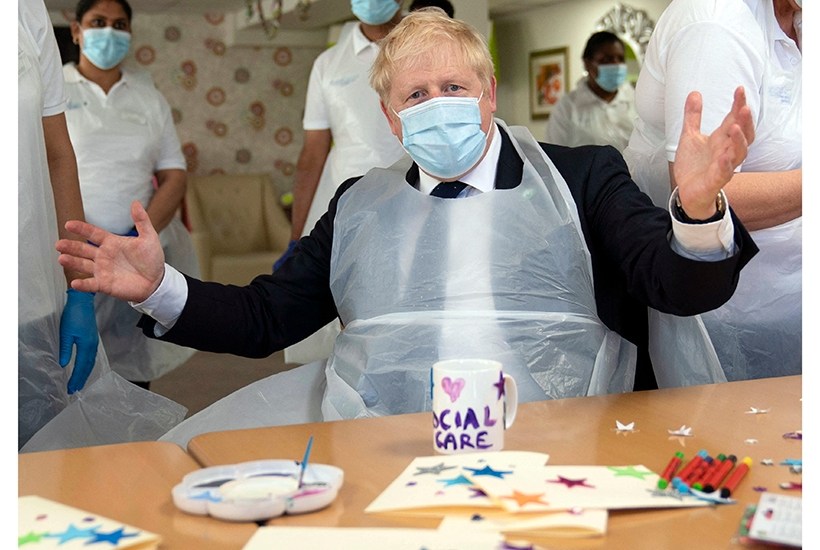

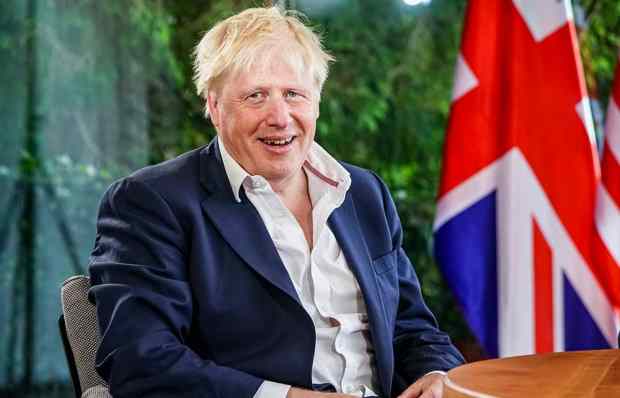
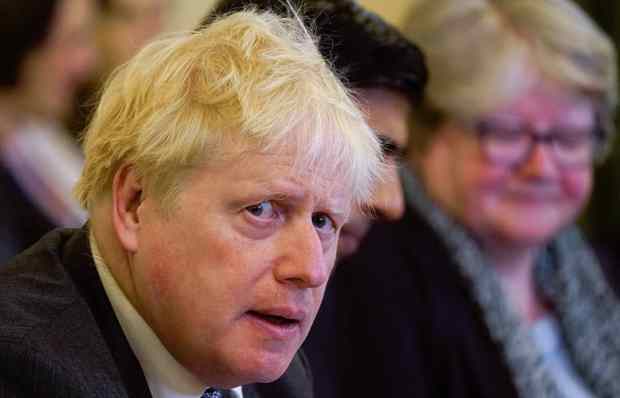
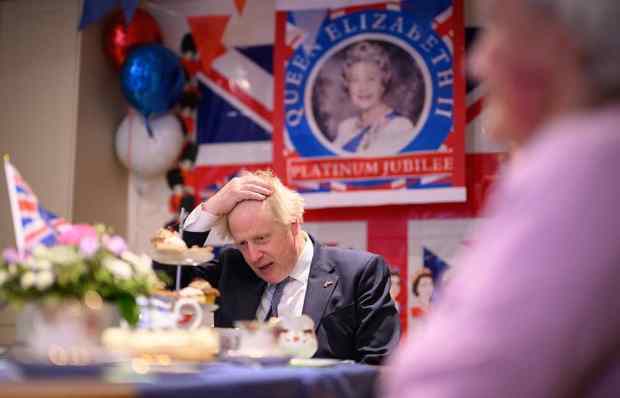
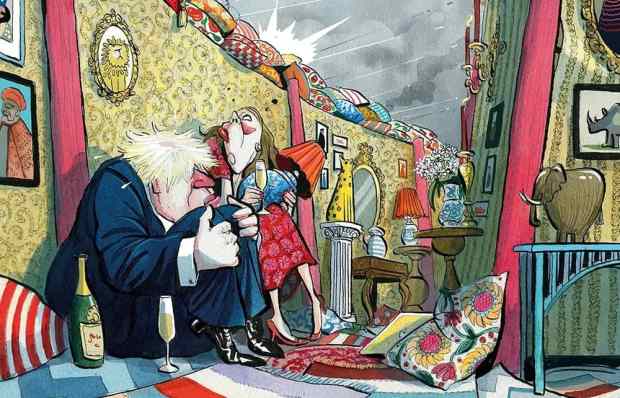







Comments
Don't miss out
Join the conversation with other Spectator Australia readers. Subscribe to leave a comment.
SUBSCRIBEAlready a subscriber? Log in